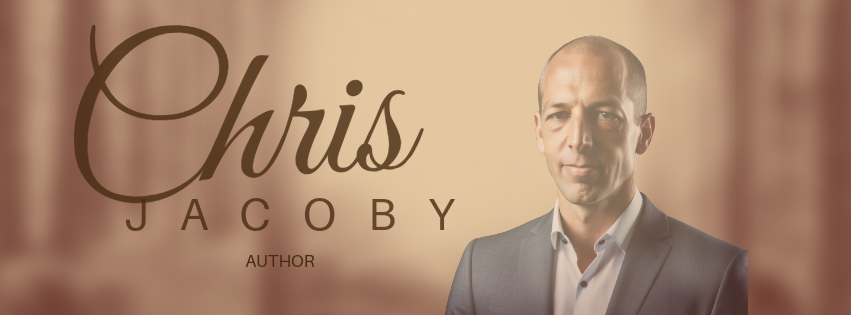Unbound - A Journey of Identity
Hey Everyone!
In my last post, I talked about Unbound’s first major theme—escape. This time, I want to reflect on the second: identity.
As I’ve mentioned before, I began Andy’s journey at sixteen because that was the first real turning point in his life. While he knew he was gay from a very young age, he struggled with his identity in more ways than one—and I tried to bring those dynamics out in the book. To explore this theme more clearly, I’d like to break it into three parts: 1) Personal, 2) Family & Friends, and 3) Society.
Personal: This is all about Andy’s self-awareness—or as some would call it, self-discovery. It’s what he grappled with first and most deeply. He knew he was attracted to boys, but he didn’t fully understand why or how. That confusion followed him from his early teens well into adulthood, all the way up to the moment he finally came out.
At times, he questioned whether being gay was a choice or something he was born with—and that uncertainty only made things harder. It wasn’t until his first intimate encounter with another man that everything truly clicked. In that moment, when emotional connection and physical attraction came together, he finally understood—and more importantly, accepted—his sexuality.
Family & Friends: As the story conveys, Andy’s conservative parents and their traditional values didn’t offer the comfort or safety he needed to come out and live authentically. That fear kept him silent.
When it came to friends, Bobby was the only one who knew—and that happened by chance. Otherwise, Andy had no idea how his other friends would react, and the risk of rejection felt too great. So, he kept his secret close, sharing it with no one else. Bobby never betrayed that trust. True to his word, he never told a soul.
Society: It was the 1980s—and the world was a different place. Coming out publicly wasn’t just hard, it felt dangerous. The risks were endless. Andy knew that if people found out, it could affect everything—his social life, his schooling, his safety. And considering school was one of the few escapes from his troubled home life, he couldn’t afford to lose it.
There was also the fear of being physically harmed. In places like Long Island back then, masculinity was rigid. Teenage boys were expected to be tough, stoic—”macho.” Being gay was falsely equated with being weak or effeminate. It wasn’t fair, it wasn’t accurate, but that’s how society viewed it. And Andy couldn’t risk becoming an outcast or a target.
That fear didn’t end when he left home. In fact, it became even more complicated once he joined the military. Back then, before “Don’t Ask, Don’t Tell” was even a policy, the rules were crystal clear—being gay could get you discharged. It meant living in secrecy day after day, constantly watching your words, your actions, even your glances. One wrong move or misplaced trust could cost him everything.
Andy found himself again walking on eggshells, just in a different uniform. The military offered structure, purpose, and escape from his father—but it came with a new set of risks. He had to compartmentalize who he was, keeping his authentic self locked away even as he served his country. Friendships were formed, but always with a layer of guardedness. There were no real outlets, no chances to be vulnerable, let alone openly affectionate. And even though he was growing into adulthood and becoming more certain about his identity, the environment didn’t allow for any expression of that truth.
Looking back, those years were a test of endurance—not just physically, but emotionally. Hiding became second nature. And yet, through all that, the desire to be seen, to be loved for who he really was, never faded. If anything, it only grew stronger. That tension—the push and pull between duty and identity—is something I tried to capture in Unbound, especially in the moments where Andy is torn between the safety of silence and the risk of living openly.
Writing these dynamics into Unbound stirred up a lot for me. I found myself looking back with regret. I resented my parents—especially my father—for creating an environment where I couldn’t be myself. I felt cheated, like I’d missed out on the joy and freedom that should have defined those formative years.
And yet, the irony is that I had a great time with my friends during those last two years at home—from sixteen to eighteen. Still, it saddens me that I didn’t have a high school boyfriend, like so many kids do. I missed out on that emotional and physical bond—on having a “first love” I could be proud of. That absence left a void. And yet, it was clouded by all the pressures I’ve just described. It wasn’t until I joined the Air Force and started living life on my terms that I truly felt fulfilled.
I hope that all of this—the confusion, the growth, the heartache, and the eventual clarity—comes through in Unbound. Because when it comes to the journey of identity, Andy’s story is, in many ways, my own.
I truly believe everything in life happens for a reason. And now, years later—with the help of Unbound—I no longer feel regret. I see my past in a new light. As we always say, we wouldn’t be who we are today if things had gone differently. And maybe…that’s the whole point.
Thanks, as always, for staying with me on this journey. Talk to you again soon—be happy, be well, and live your life. And most importantly…don’t take any shit from anyone! 😉
— Chris
